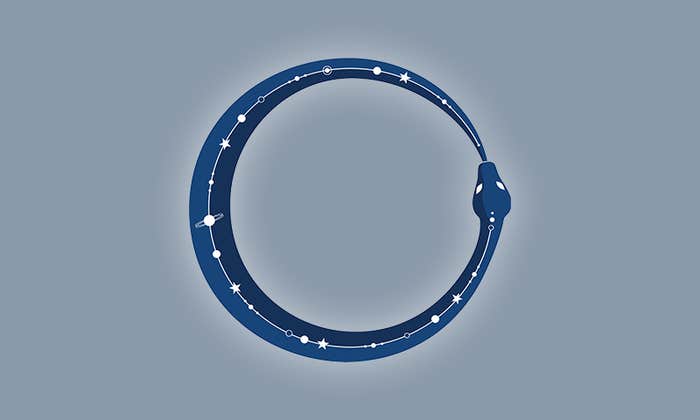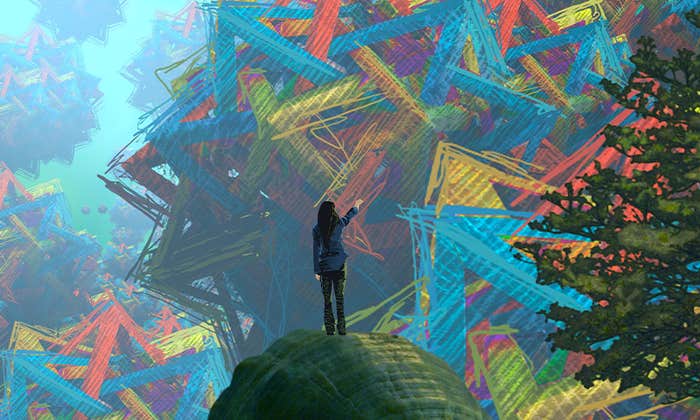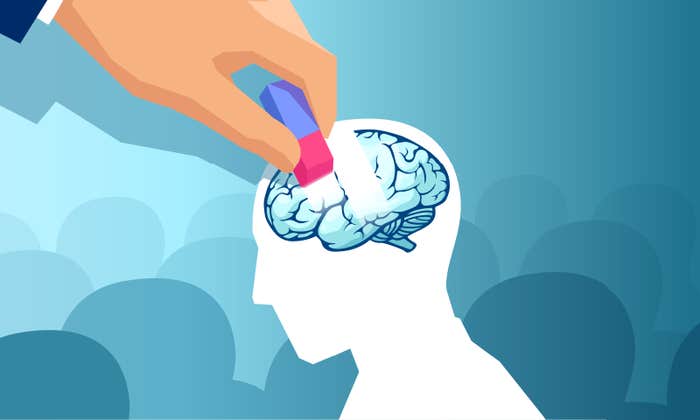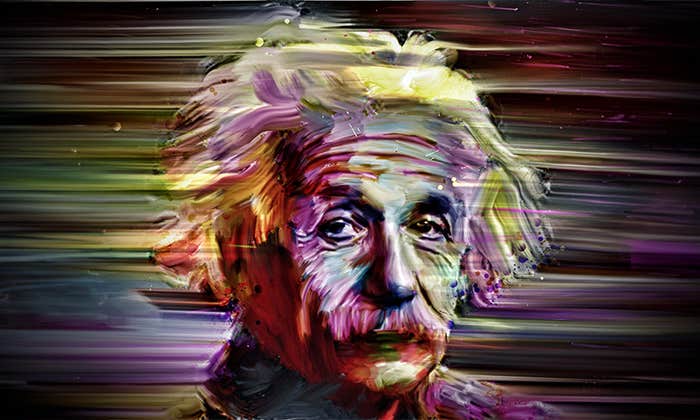For some people, it arrives with a car crash. Others an assault or a medical diagnosis. Still others with a drug dose or a period of sustained stress. Suddenly a veil unfurls, and the world around them seems unreal. The same furniture is in the living room. The same trees are outside turning shades of gold in the sun. But it’s all not quite … right. Even one’s hand doesn’t seem like their own.
Most people will experience this sensation at some point in life, a passing haze of disconnection for a few moments, hours, or days. For some, however—an estimated 1 to 2 percent of the population—it persists for months, years, even decades, becoming a chronic “depersonalization-derealization disorder.” Some psychiatrists think that figure is low, and that the condition is widely underdiagnosed, frequently hiding within the layers of depression or anxiety.
Rachael Murphy first began exploring the disorder a few years ago. She’s the author of a neuroscience review of this existential purgatory and has spent years meeting with patients who have the disorder, as a resident in the department of psychiatry at Lehigh Valley Health Network in Pennsylvania.
We wanted to know what is happening in the brain when reality ceases to feel real, what that experience is like, and what that might tell us about the nature of our constructed reality. So we called Murphy and ended up talking about all of this, as well as nihilism, photons, and the importance of an emotional connection to your couch.
What is this disorder like to those experiencing it?
It’s almost a nihilistic sensation to feel like you’re not in your body anymore, to feel like you’re not connected to reality anymore. We see the philosophers like Nietzsche describe it, but it becomes an experience in itself, even at the physical level. I’ve worked with probably thousands of patients, and they tell me, “I feel like there’s no more meaning.”
What attracted you to this slippery and, some might say, neglected corner of psychiatry?
I was interested in the brain, but also in the humanities, philosophy, religion, and in knowing the deeper metaphysical aspects of what’s going on in the mind. In 2020, I switched disciplines from neurology to psychiatry. I wanted to show how many people I saw struggling with this phenomenon, especially during the pandemic. There were a lot of stressful conversations happening in the world, and people were paying more attention to trauma and how it manifests in the body. Because being a human being means having a body. I wanted to explain that in a way that would prove to other people that, “Hey, this isn’t just a subjective-mind experience.”
“I know this is my hand, but it doesn’t really feel like it belongs to me.”
You mentioned trauma, which seems like it’s often a trigger for this sort of persistent disconnection with reality?
Yes, this can largely be explained through how the brain is reacting to stress, to trauma. Having a near-death experience or an assault or having witnessed those things can completely unravel somebody’s trust in how they previously perceived the world. Because if reality is something that can no longer be trusted, you’re going to have hypervigilance.
Your brain will dampen down its emotional response—because that experience opened up a floodgate of negative emotions—which can help in survival mode. The problem comes when that mode is no longer serving you.
When we perceive threats, our brain usually hyper-activates the amygdala circuits in the limbic system. But one of the features of this condition is an increased activation of the prefrontal cortex—to try to dampen that overwhelm from the limbic system—that becomes chronic.
So why, in this mode, do things become unfamiliar and alien? If you think about the amygdala, it’s attaching emotional salience to memories, and it’s in the limbic system, which also involves the memory circuits, the hippocampus. When it’s working well, it’s retaining the emotional quality of your memories, and that’s giving everything a personal significance. So when you’re dampening down your limbic system, things are going to feel strange.
How does this “strange” lens on reality feel, in daily life?
When you’re dissociated, the integration of emotional information and the factual information is severed. When you’re in survival mode, you don’t have room for the emotional information. But that’s the information that’s tied to everything you feel and your sense of self.
So even looking at the most simple things becomes distressing. Because all you have is just the factual information. I’ve heard someone say: “This is my couch. I know it is my couch. But it doesn’t feel like my couch.” Others say, “I know this is my relative, or my spouse, but how come I’m not feeling a connection?” Or even, “I know this is my hand, but it doesn’t really feel like it belongs to me.”
What happens when that becomes chronic? Now the problem is the anxiety and fear about the disconnection causes people to stay in that fearful, survival state. Then it becomes a fixed cycle, and it’s hard for people to get out of it, it becomes this feedback loop. Some have even described it as like an existential OCD.
The paradoxical thing about depersonalization and derealization is that it feels like it’s the opposite of insanity. There are no perceptual disturbances. One psychiatrist who was describing this in earlier years said, you feel like you’re too sane to function.
That ties back to philosophers who describe something similar, like Nietzsche, right? Some people have even described the experience as a dark enlightenment. Because it seems like this is what reality is. But the brain is severing that connection with the emotional experience that is actually part of reality, too.
We often think of reality as being just the facts, the perceptions we’re taking in—like I’m looking out my window and seeing sunlight coming through the leaves of the aspen trees in my yard. I can observe those details. That, I would have thought, would be a description of my reality right now. So it sounds like, from what you’re saying, emotion really is a foundational element of our construction, our feeling of reality?
I would say, yes. It’s that relational connection to things. What happens when those emotional connections are taken away? What’s left? Who are you? Because everything is relational.
I guess that’s something we take for granted, the emotional layer that creates our experience of reality. Like the aspens. Even if I wasn’t consciously thinking about it, part of my implicit experience of looking at the light coming through the leaves was also feeling connected to when I planted them, the emotional valence of my life at that time—and its place on a continuum with life now. Is that more of a full definition of reality, than describing just the details of the leaves and the sunshine?
Yes, definitely. Another example is looking up at the moon. In human history, there is so much poetry, music, art, and cultural significance around the moon, right? There’s the sense of awe, that mystery. So because of the human emotional attachment to the moon, there’s a greater reality to it than a rock floating up there. Or like when you said the sun was filtering through the leaves. When you have that disconnection, the sun is just photons, the moon is just a rock.
I think what I’ve learned through all of this is that our sense of reality is always attached to something. Who are we? We’re fitting into things.
Does all of this make you think that our ability to make sense of reality plays a larger role in our ability to make meaning out of life?
I think reality and meaning go together. When we think they’re separate things, that’s when we run into issues. ![]()
Lead image: Nadia Snopek / Shutterstock


























